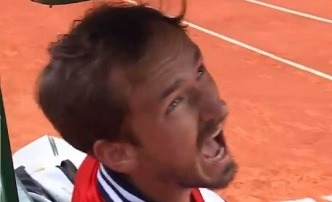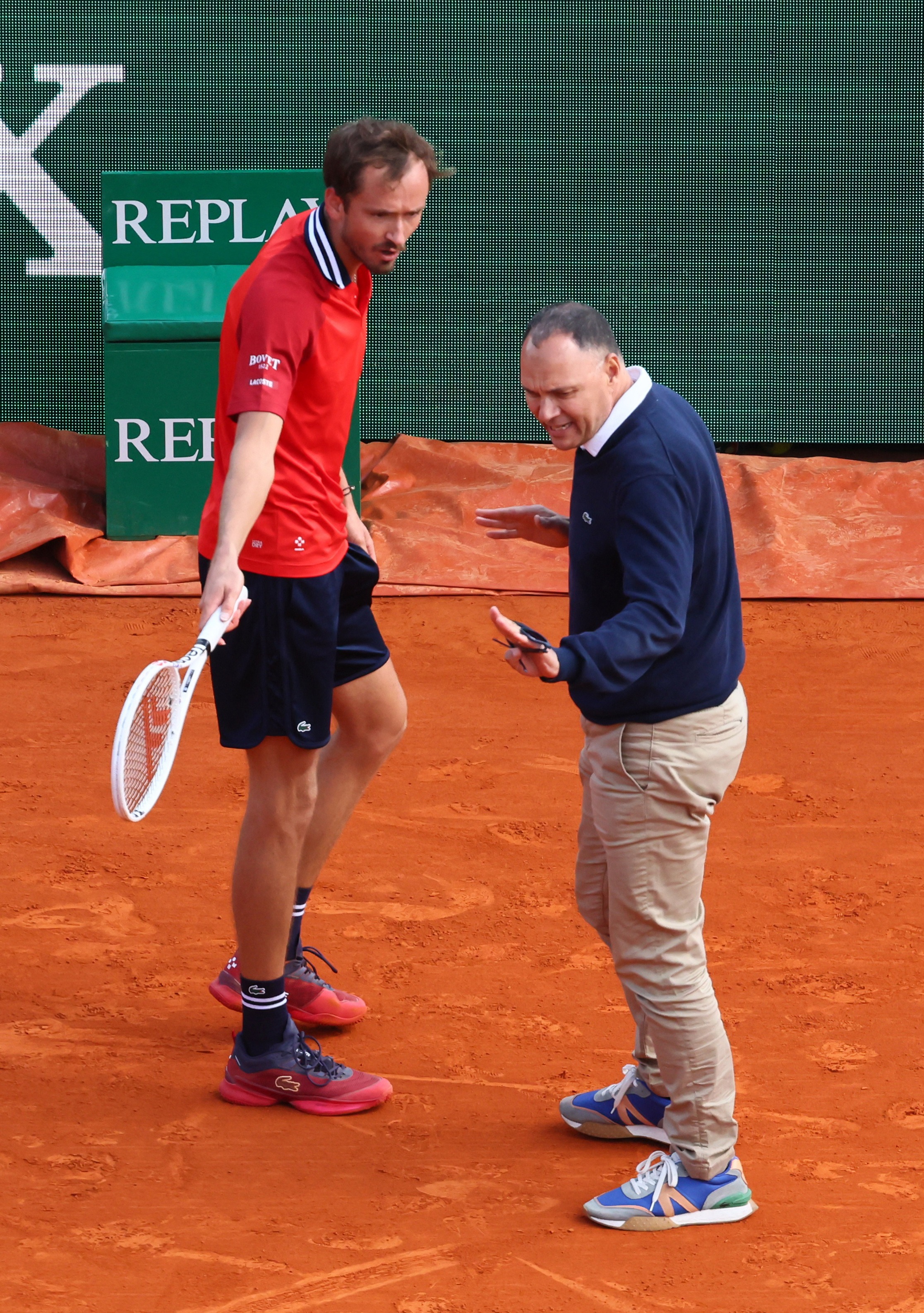All Eyes on Medvedev
Russian tennis star Daniil Medvedev stole the show at the Monte-Carlo Masters with a dramatic outburst during his match against Gael Monfils.
The Meltdown
Medvedev, 28, got into a heated exchange with umpire Mohamed Lahyani, screaming and gesturing furiously on the court.
Outbursts and Tantrums
During a crucial moment in the match, Medvedev was left fuming by line judge calls, leading to a series of angry reactions and a memorable tantrum.
Controversy Follows Medvedev
This is not the first time Medvedev has courted controversy, with past incidents including fines for throwing coins at an umpire and provocative comments at tournaments.

Fans React
While some fans sympathized with Medvedev's frustration, others criticized his behavior, calling it embarrassing and over the top.
Regaining Focus
Despite the meltdown, Medvedev managed to refocus and secure a victory, advancing to the next round of the tournament.
History of Drama
Medvedev's on-court antics and clashes with officials have become a recurring theme in his career, adding an element of unpredictability to his matches.
Frequently Asked Questions
How important are junior tennis tournaments in a career of professional tennis?
A junior tournament is a key step to a successful tennis career. These tournaments give young athletes the chance to compete against peers, gain valuable experience in matches, and learn how to deal with the mental demands of competitive play. Junior tournaments also serve as a stepping stone to higher-level competitions and can significantly impact a player’s ranking, visibility to coaches and sponsors, and their overall development as a player.
What is the importance of nutrition and diet for a tennis athlete?
Tennis players are no different. Nutrition and diet is vital to any athlete who wants to perform at their best. A proper diet is essential for intense training, as it helps to provide energy, promotes recovery, and reduces injury risk. Diets for elite athletes usually include a mix of carbohydrates with proteins and fats. They also contain essential vitamins. A good fluid balance will help you avoid fatigue and keep your concentration high during the game.
Is it possible to become a tennis professional if you start late?
Even though it can be more difficult, someone who starts playing tennis later on in life is still able to reach professional status. The success of an individual will be determined by their athletic ability, work ethics, dedication and the availability of quality coaching and competition. Late starters may need to undergo intensive, focused training. Although the road is more difficult, with talent and persistence, it’s possible to reach a professional level.
What role does videoanalysis play in the training of top tennis players
Video analysis is a critical tool for training and developing top tennis players. It is a great tool for reviewing technique, tactics and patterns of opponents. Video analysis allows coaches and players alike to review strokes in detail, identify areas for improvement, strategize and plan against future opponents. It also aids in recognizing habits and tendencies that may go unnoticed during the heat of competition, enabling more targeted and efficient practice sessions.
How does mental and psycho-social training affect tennis training?
Tennis players must be mentally and psychologically fit. The players need to learn how they can manage their stress levels, stay focused, and deal with the emotional ups and downs of competition. Techniques such as visualization, goal-setting, and mental rehearsals are common practices. A sports psychologist helps players to build resilience, develop strategies for dealing with pressure and raise their mental game.
Statistics
- Engaging in structured video analysis sessions has been shown to improve a player’s tactical decision-making by approximately 35%.
- Research indicates that junior tennis players who compete in international tournaments gain significant psychological advantage and experience, with participation leading to a 50% better transition into professional rankings.
- Strength and conditioning coaches emphasize core strength, noting that an increase in core stability can improve shot accuracy by up to 43%.
- Top tennis players typically train for 4 to 6 hours per day, divided between on-court practice and fitness training.
- Persistent mental training and sports psychology can help reduce performance anxiety by up to 60%, according to sports psychologists working with elite athletes.
External Links
optimumtennis.net
tenniscompanion.org
atptour.com
topendsports.com
tennisfitness.com
- Tennis Fitness
How To
How to Build Endurance for Long Tennis Matches
Building endurance for long tennis matches requires both aerobic and anaerobic training. Begin by incorporating moderate-intensity cardio exercises, such as cycling or running, into your daily routine to increase aerobic capacity. Add high-intensity interval training (HIIT) to your routine to increase anaerobic threshold. On the court, simulate match conditions by practicing extended baseline rallies and engaging in practice matches that focus on consistency and prolonged points. Include exercises that strengthen your core. A strong, stable core is critical to endurance. Ensure that you also focus on adequate recovery and nutrition to sustain high levels of performance.

